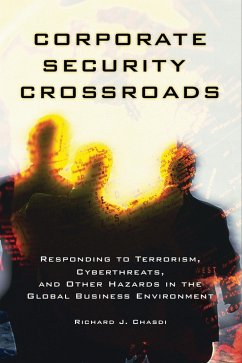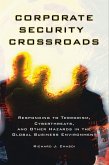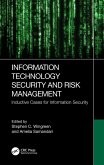Even though terrorism poses an increasing threat to multinational companies, corporate leaders can thwart attacks by learning to navigate the complexities of foreign governments, social unrest, and cultural dissonance. Multinational corporations are on the front lines of terrorism and cyberattacks-two of the world's biggest threats to global security. How can corporate leaders mitigate their organizations' risks and develop an infrastructure that detects and deters a security menace before it happens? This timely reference lays out essential political context and historical background to help executives identify contemporary threats and understand the interconnections between threat dynamics in an increasingly dangerous international environment. This compelling work is organized into seven chapters. The beginning chapters profile the specific risks for multinational companies and detail which global-and regional-factors might propagate violence targeted at American-based businesses. Next, two historical case studies on terrorist assaults at Tigantourine and Mombasa illustrate how counterterrorism can successfully thwart potential attacks against business targets. The final part describes industrial espionage and criminal activity and then outlines a corporate counterterror blueprint to combat the prospect of terrorism, providing specific recommendations for preventative measures.
Bitte wählen Sie Ihr Anliegen aus.
Rechnungen
Retourenschein anfordern
Bestellstatus
Storno









